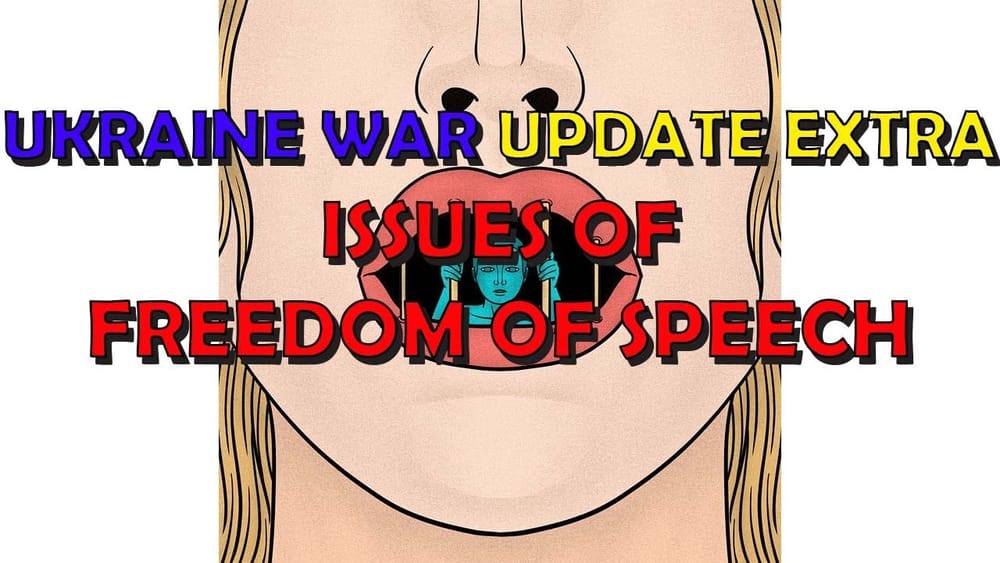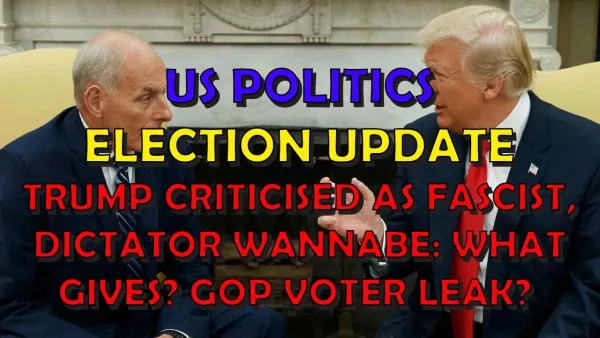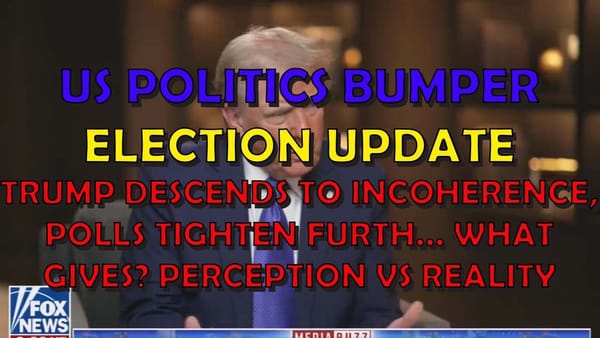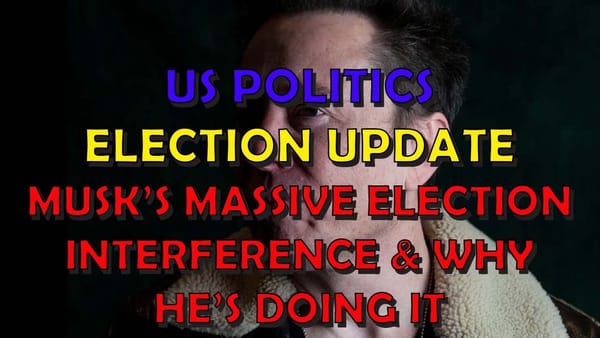Ukraine War Update EXTRA: Freedom of Speech
Table of Contents 📖
| Topic ID | Topic Title | Timestamp |
|---|
"Human rights don't exist. By that I mean they do exist, but we construct them. They don't exist out there."
Hello Team!
Jonathan discusses the closure of RT France after its accounts were frozen and it was banned in the EU. He responds to a viewer comment claiming you either have freedom of speech or you don't, and that propaganda and censorship are dangerous. Jonathan disagrees with this simplistic view.
Return to top⤴️
Freedom of speech is not absolute
- Freedom of speech exists on a continuum, it is not an all-or-nothing concept. No country has complete freedom of speech.
- There are always some restrictions, e.g. a child can't scream and swear at their teacher for an entire day. That would infringe on other children's right to an education.
- A head of state can't incite violence against a group of people on TV. There are limits to acceptable speech.
- Russia has shut down alternate viewpoints and you can't even call the war a "war". So Russia is being hypocritical in this debate.
Rights are human constructs
- Rights don't exist as objective truths outside the human mind. We construct the concept of rights.
- Rights only exist when we generate them, write them into laws, and enforce those laws.
- The UN Charter of Human Rights is an example. But it's only as meaningful as it is upheld and agreed upon. Some countries don't adhere to it.
- What is considered a "right" changes over time as societies change, e.g. slavery used to be considered acceptable.
Drawing lines on a continuum
- Abstract concepts like freedom of speech exist on a continuum. Different countries draw the line between acceptable and unacceptable speech at different points.
- There is no objectively "correct" place to draw this line. It's up for debate and disagreement.
- The "sorites paradox" illustrates the difficulty of drawing lines on a continuum - there is no definitive point where a quantitative change becomes a qualitative change.
- Governments have to make judgment calls on where to draw the line based on the kind of society they want to create. But it will always be somewhat arbitrary.
Disinformation and societal harm
- We don't live in a world where everyone has access to all information and can make perfectly rational judgments about what is true or false (an idea from economics called "homo economicus").
- In reality, people often believe disinformation that is packaged persuasively. This can lead to support for dangerous autocratic regimes and cause societal schisms.
- Just as governments want to protect people's physical health by not allowing the sale of harmful products disguised as something else, they also have a responsibility to protect people's mental health from harmful disinformation.
- During WWII, the UK censored and shut down Nazi sympathizer media to prevent the spread of enemy propaganda. This was seen as necessary to protect the country at a time of war.
Wrap up
The key philosophical ideas here relate to the ontology of abstract concepts - whether they exist as objective perfect forms (Plato's view) or only inside human minds. Jonathan takes the latter view - we construct these ideas, attach labels to them, and then try to get agreement and write them into dictionaries or laws. But it doesn't mean they definitely exist as external truths. They emerge from our thinking minds.
Return to top⤴️



